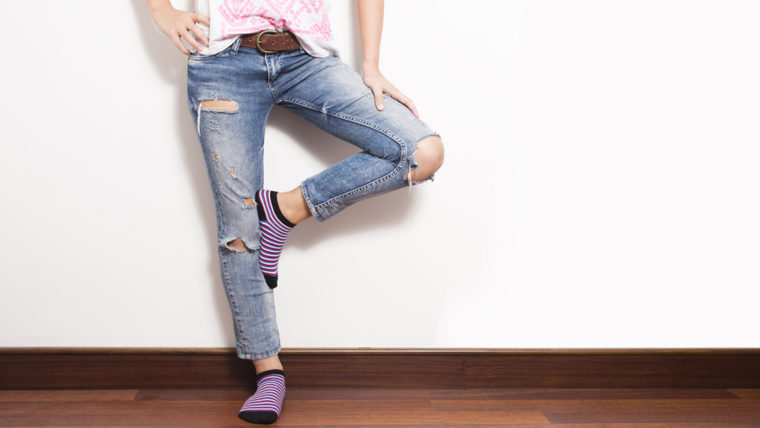Of all the ways to put a damper on your love life, this might be the strangest.
In a quirk of the brain, it turns out feeling physically unstable may make you feel unsteady about your spouse or lover, too.
People who were made to stand on one leg or sit at a wobbly desk were less upbeat about their relationships than people without any balance challenges, a fascinating new study has found.

“It’s not the case that as soon as somebody stood on one foot and felt really unstable they thought they’re going to break up tomorrow. These are subtle shifts,” lead author Amanda Forest, an associate professor of psychology at the University of Pittsburgh, told TODAY.
“To the extent that you’re experiencing any physical instability in the moment, it’s possible that you may judge your relationship as somewhat more unstable than you otherwise would.”
Why exactly that’s happening may go back to our childhood. As an infant, the sensation of being handled roughly by an adult may have been coupled with feeling insecure, Forest said. In contrast, being held or swaddled may have been coupled with experiences of feeling confident. So feeling wobbly or steady as an adult could re-activate those feelings, she noted.
Watch: TODAY tests apps, chairs and belts that promise to improve your posture
This study was part of a wider field of research called embodied cognition.
“It’s the idea that our thinking is dependent on features of our physical experience,” Forest said. Feeling warm or cold, for example, may influence how warmly or coldly you act toward others. Meanwhile, physical stability can influence how we perceive our relationship stability.
In one experiment, researchers asked university students who had a long-term partner to weigh in on their relationship quality in a questionnaire. Half of the students were randomly assigned to fill it out while sitting at a workstation that was rigged to be wobbly. The others had a normal desk and chair. The results? Students in the unstable workstation felt their relationships were less likely to last than the other participants, the study found.
In another experiment, also involving people in exclusive romantic relationships, the subjects were randomly asked to fill out a questionnaire either while standing normally or standing on one foot. The subjects also had to compose a message to their partners telling them how they felt about them.
It turned out the people who stood on one foot felt their relationships were less stable and less likely to last, according to the study. As for that romantic message, those wobbly one-legged souls expressed less affection to their loved ones than the other participants.
A third experiment involving people resting on a cushion that either made it stable or unstable to sit further confirmed the effects.
The lesson here may be to simply be aware how the world around you affects your thinking.
“It may be wise to be cognizant of your physical surroundings or your bodily experiences when you’re making important judgments or decisions about your relationships,” Forest said.